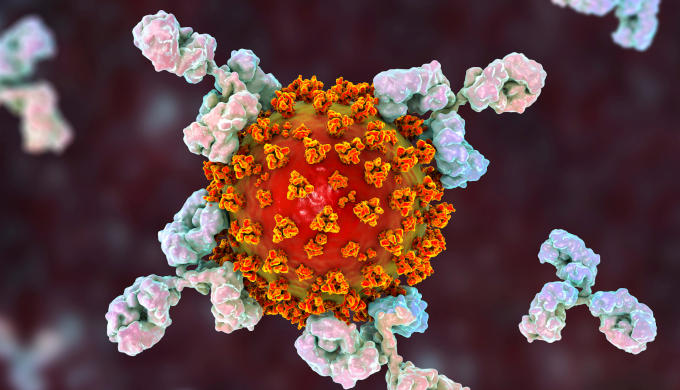Author: Claire Barnard
medwireNews: Pre-exposure prophylaxis with tixagevimab and cilgavimab (Evusheld) may be an effective strategy to prevent symptomatic SARS-CoV-2 infection among people with rheumatic diseases treated with rituximab, suggest findings from a real-world study.
While vaccination is the “primary strategy” for protection against COVID-19, certain populations such as those on B cell-depleting agents may have a suboptimal response to vaccines, say Anthony Ocon (Rochester Regional Health, New York, USA) and team.
Therefore, the US FDA has issued an Emergency Use Authorization for the administration of tixagevimab and cilgavimab as pre-exposure prophylaxis in high-risk populations, they add.
The study included 43 patients with rheumatic diseases treated with rituximab (mean age 59 years, 70% women), the majority (81%) of whom had received three doses of a messenger (m)RNA COVID-19 vaccine. The most common diagnosis was rheumatoid arthritis (49%), followed by anti-neutrophil cytoplasm antibody-associated vasculitis (30%), other vasculitis (9%), Sjögren’s syndrome (5%), and systemic lupus erythematosus (2%).
These people were all given tixagevimab plus cilgavimab, both at doses of either 300 mg or 150 mg according to FDA recommendations.
Ocon and team report in the Journal of Clinical Rheumatology that just one person in their cohort experienced symptomatic COVID-19 during an average follow-up of 100 days after administration of antivirals; this individual had received three mRNA vaccines and recovered without the requirement for additional medical treatment.
Therefore, 97.8% of the cohort did not develop symptomatic infection, they say.
Although the study did not include a control group, the investigators note that “there was a high rate of transmission of SARS-CoV-2 in the area throughout the study period,” with a local cumulative incidence rate of 4.3%.
“With this extensive degree of viral activity in the region, it is very reassuring that only one individual in our high-risk cohort experienced symptomatic infection with SARS-CoV-2,” they write.
The researchers note that none of the study participants reported serious adverse events (AEs) requiring medical attention following receipt of the antivirals. The most commonly occurring AEs were myalgia (n=3), flu-like symptoms (n=2), and fever (n=2).
Taken together, the study results suggest that “[a]dministration of Evusheld may be considered as part of a multilayered approach to risk mitigation in this high-risk population as pre-exposure prophylaxis,” concludes the team.
medwireNews is an independent medical news service provided by Springer Healthcare Ltd. © 2022 Springer Healthcare Ltd, part of the Springer Nature Group
24 October 2022: The coronavirus pandemic is affecting all healthcare professionals across the globe. Medicine Matters’ focus, in this difficult time, is the dissemination of the latest data to support you in your research and clinical practice, based on the scientific literature. We will update the information we provide on the site, as the data are published. However, please refer to your own professional and governmental guidelines for the latest guidance in your own country.
Image Credits: © Kateryna_Kon / stock.adobe.com



